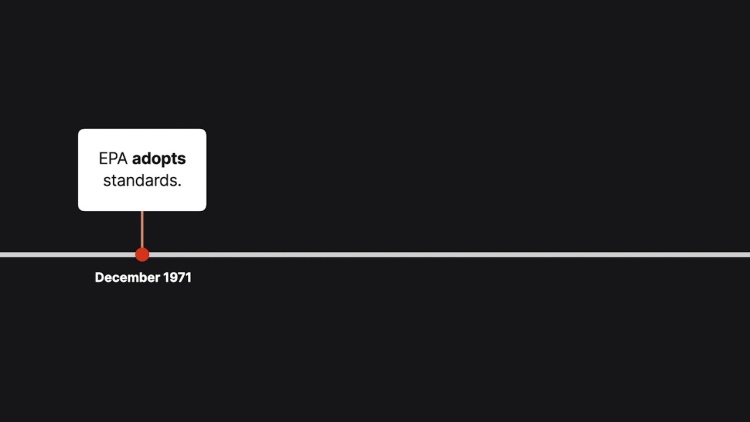Portland Cement Association v. Ruckelshaus
United States Court of Appeals for the District of Columbia Circuit
486 F.2d 375 (1973), cert. denied, 417 U.S. 921 (1974)
- Written by Kathryn Lohmeyer, JD
Facts
The Environmental Protection Agency (EPA) designated certain cement plants as potentially significant contributors to air pollution under section 111 of the Clean Air Act, 42 U.S.C. § 7412. Subsequently, EPA Administrator William Ruckelshaus (defendant) issued a notice of proposed rulemaking to set performance standards capping the emissions of cement plants. The proposed regulations and accompanying background information provided a brief summary of test results upon which the proposed performance standards were based, but did not disclose any test-site information or the methodology employed. The EPA was required to issue its final performance standards within 90 days of providing notice of the proposed standards. After the comment period, the final performance standards were incorporated into EPA regulations. The Portland Cement Association (plaintiff) petitioned for review of the EPA’s performance standards. While the case was pending, the EPA issued a supplemental statement disclosing that (1) the proposed standards were based on testing of a particular type of filter and (2) additional successful testing had been performed during the comment period. A month later, the EPA disclosed the dates, locations, and methodology of both the initial testing and the second round of testing conducted during the comment period.
Rule of Law
Issue
Holding and Reasoning (Leventhal, J.)
What to do next…
Here's why 906,000 law students have relied on our case briefs:
- Written by law professors and practitioners, not other law students. 47,100 briefs, keyed to 995 casebooks. Top-notch customer support.
- The right amount of information, includes the facts, issues, rule of law, holding and reasoning, and any concurrences and dissents.
- Access in your classes, works on your mobile and tablet. Massive library of related video lessons and high quality multiple-choice questions.
- Easy to use, uniform format for every case brief. Written in plain English, not in legalese. Our briefs summarize and simplify; they don’t just repeat the court’s language.





